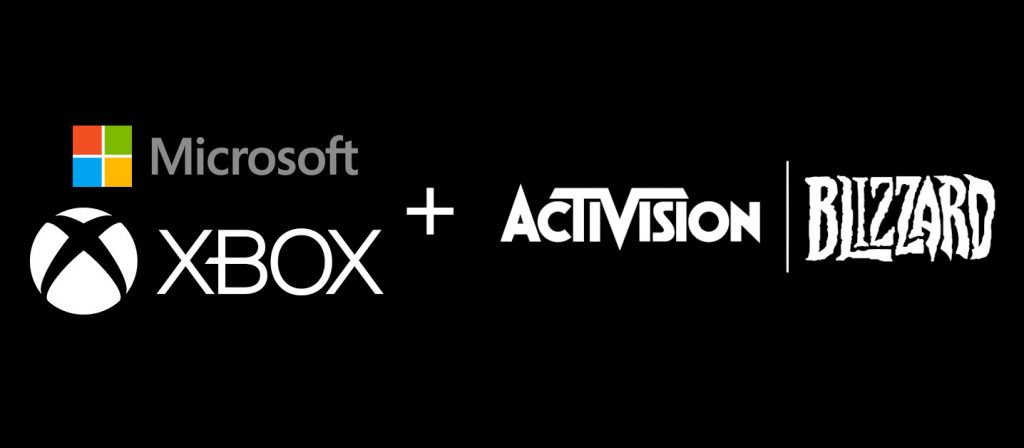

On Monday, the European Union granted its approval for Microsoft’s acquisition of video game manufacturer Activision Blizzard, which is valued at $68.7 billion. The EU concluded that this deal would not hinder competition in the market for sought-after console games such as Call of Duty.
The British Regulators and U.S. Authorities Pose Challenges
Additionally, the EU accepted the measures proposed by Microsoft to enhance competition in the realm of cloud gaming. It is worth noting that in December 2022, the U.S. Federal Trade Commission lodged a complaint in an attempt to impede Microsoft’s acquisition of Activision Blizzard.
The $68.7 billion deal between Microsoft and video game maker Activision Blizzard is encountering obstacles due to its rejection by British regulators and the efforts of U.S. authorities to prevent its completion.
European Commission’s Approval with Remedies for Competition
The European Commission, the executive arm and top antitrust watchdog of the 27-nation bloc, has granted approval for the deal. Microsoft’s promises to improve licensing conditions for cloud gaming played a crucial role in this decision. According to the Commission, the deal no longer raises competition concerns and is expected to bring significant benefits to competition and consumers.
Regulatory Scrutiny over Xbox Control and Hit Franchises
Since its announcement over a year ago, the all-cash deal has been closely examined by regulators worldwide. Concerns have been raised that Microsoft’s ownership of Activision’s popular franchises such as Call of Duty and World of Warcraft would grant them too much control over the gaming market, particularly with their Xbox console. Sony, the manufacturer of the PlayStation gaming system, has been a prominent opponent of the deal.
Microsoft’s Efforts to Address Opposition
To counter the opposition, Microsoft pursued a deal with Nintendo to license Activision titles like Call of Duty for a decade. They also extended the same offer to Sony if the acquisition proceeded.
European Commission Dismisses Exclusion of PlayStation
The European Commission, after conducting its review, dismissed the possibility of Microsoft cutting off its games from the PlayStation console. Excluding such a popular gaming platform would significantly impact Microsoft’s profits.
Focus on Cloud Gaming Market
Brussels closely examined the emerging cloud gaming market. Cloud gaming enables players to stream games they own to various devices, eliminating the need for expensive consoles or gaming computers. Microsoft’s offer to modify its licensing agreements was accepted by the Commission, allowing users and any cloud gaming platforms to stream its titles without paying royalties for a decade.
Expanding the Cloud Gaming Market
While Activision games are currently unavailable on cloud services, the licensing commitments made by Microsoft could potentially expand the cloud gaming market. These commitments aim to bring Activision’s games to new platforms, including smaller EU players, and make them accessible on a broader range of devices.
Diverging Stances: EU vs. UK Regulators
The EU’s decision contrasts with that of British antitrust regulators, who recently disrupted what could have been the largest tech deal in history. The concerns raised by the British Competition and Markets Authority revolved around potential competition limitations in the rapidly growing cloud gaming market. The companies are appealing this decision to a tribunal, but past outcomes do not bode well, as witnessed with Facebook’s forced sale of Giphy after the denial of its acquisition.
Potential Impact on U.S. Regulatory Battle
The EU’s decision may bolster Microsoft’s position as it faces challenges from U.S. regulators. The Federal Trade Commission is pursuing legal action to block the deal, with a trial scheduled to commence on August 2, 2023 before the FTC’s in-house judge.
Speaking at the announcement, Sarah Cardell, Chief Executive of the Competition and Markets Authority, said:
The European Commission has agreed to Microsoft’s plans today, which would give Microsoft the power to shape this market for the next decade. The outcome could change if they win the appeal against the decision in the UK competition tribunal. But if Microsoft fails in the UK, it’s still the end of the story, unless Microsoft chooses to exit the UK market.
Commenting on the announcement, Brad Smith, Vice Chair and President of Microsoft, said:
The European Commission has mandated Microsoft to allow rival cloud gaming services to access popular Activision Blizzard games by default. This will have a global impact and will enable millions of gamers worldwide to enjoy these games on any device they prefer.
